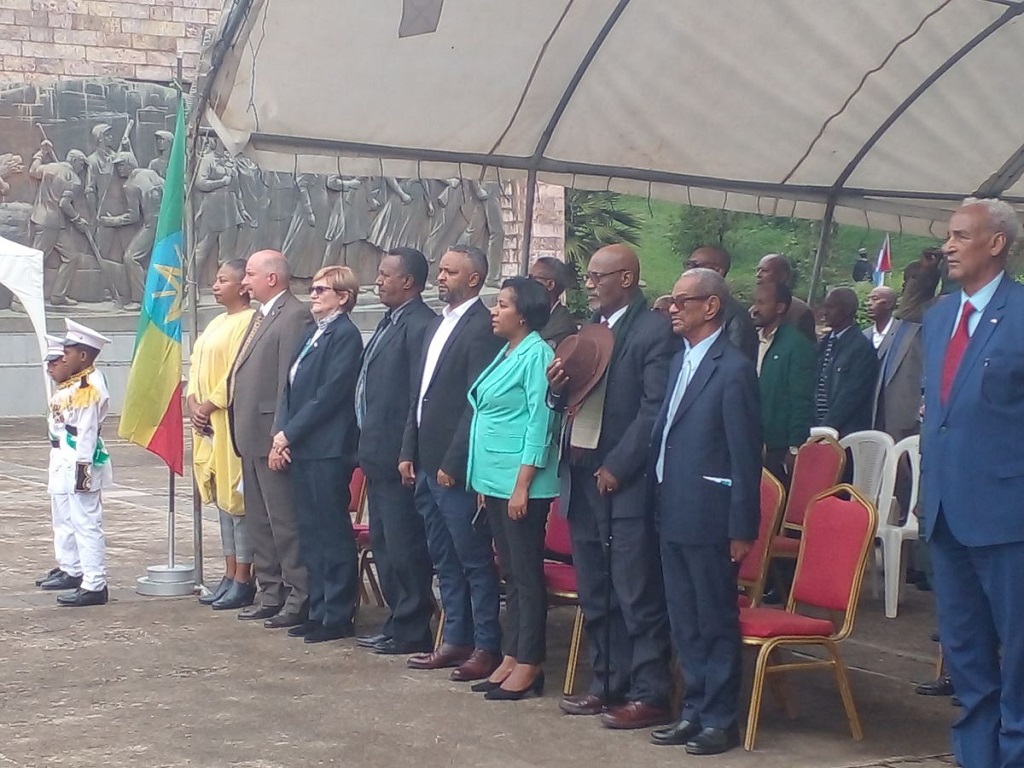The persistent drizzle that presages the approaching rainy season did not prevent the heartfelt tribute to those who fell in that battle that protected the sovereignty and territorial integrity of the African country over the Ogaden desert against external expansionism.
Cuban Ambassador Jorge Lefebre recalled that the story began on November 25, 1977, when Commander-in-Chief Fidel Castro, in response to a request from the Ethiopian Government, signed the order authorizing the participation of Cuban troops in the confrontation with Somali aggressors.
Lefebre pointed out that Operation Baraguá paid tribute to an epic in Cuban history when a group of officers of the Mambi Army, led by General Antonio Maceo, rejected the peace without honor offered by the Spanish colony, and decided to continue the war until full independence was achieved.
In seven weeks and equipped with Soviet weapons, the Cuban and Ethiopian troops liberated the occupied territory of the Ogaden that consisted of more than 320,000 square kilometers and dozens of towns. The aggressors were forced to retreat, Lefebre pointed out.
“Throughout the internationalist gesture in Ethiopia, 163 Cuban combatants, whose photos are visible in this park and are a permanent reminder of the historic relations between Cuba and Ethiopia, gave their lives,” the ambassador said.
He praised the hundreds of Cuban doctors, teachers and health personnel who have served in Ethiopia, as well as more than 5,000 Ethiopians, many of them war orphans, who have been educated in Cuba since the 1970s.
Lefebre noted the fraternal meeting at the highest governmental level between the two countries, which will celebrate 50 years of diplomatic relations and friendship in 2025.
jg/arm/mem/nmr










